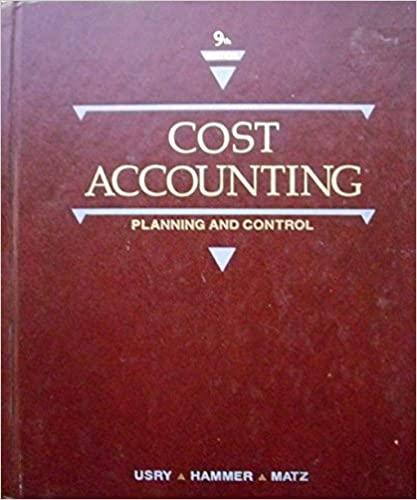Question
It's not the crown jewels, but it's certainly the family silver they're selling, was the verdict of one retail analyst on Pinault- Printemps-Redoute's decision to
It's not the crown jewels, but it's certainly the family silver they're selling," was the verdict of one retail analyst on Pinault- Printemps-Redoute's decision to negotiate the sale of its Finaref financial services arm for 3bn. The French retail group's desire to sell assets to reduce its 6bn debt is no secret, but investors are surprised it has chosen the profitable Finaref as its next disposal target.
Although no announcement has been made, people close to the negotiations say PPR is in advanced talks to sell Finaref, France's third largest consumer credit group with 8.5m storecards among its customers, to Credit Agricole or another French bank. "All the big banks are interested," says one Paris banker. PPR is expected to keep control of its customer database while selling the credit provision side of the business. The company will have to guarantee exclusive access to its customers for a number of years to Credit Agricole or any other buyer.
Such a deal would have obvious short-term attractions for PPR, whose share price had fallen more than 50 per cent this year before news of the talks emerged at the weekend. A sale would halve PPR's debt and prepare its balance sheet for the "Gucci put" - its agreement to pay $4.8bn in 2004 for the 47% stake of the luxury goods group it does not already own.
PPR shares rose sharply yesterday to close 8.7% up at 75.00, helped by news that a syndicated loan had been oversubscribed by 500m to take the mixed three-year and five-year facility to 2.5bn. That is exactly what the company - and Artemis, the Pinault family holding company that owns 42% of PPR - intended. PPR, led by chief executive Serge Weinberg, wants to shake off lingering suspicions of liquidity problems. Artemis needs PPR's share price to recover because some of its own debt is guaranteed by its PPR stake, and liable to be renegotiated if the PPR share price drops too far.
"PPR needs oxygen," says one person close to the negotiations. "This allows it to cut debt without touching the core retail and luxury goods businesses. It reinforces financial structure and solves the problem of the 'Gucci put' well ahead of time." Analysts agree that the deal has attractions, but are doubtful about selling a business that in the first half of this year produced 150m of earnings before interest and tax - not far off the 168m from luxury goods or the 195m from the entire retail side, including store groups such as Printemps, Conforama and Fnac. PPR's operating margins in financial services are more than 30%, compared with less than 5% in its core retail operations.
"In terms of investor sentiment, clearly the Finaref sale would be positive," said the retail analyst yesterday. "Sentiment has been dominated by the balance sheet and the impending payment of some $5bn for Gucci. But I'm not convinced that it's such a great deal." PPR signaled that it was preparing to sell business-to-business companies, such as Rexel, the electrical equipment distribution group. The fact that PPR chose to sell Finaref instead aroused suspicions that it was finding it hard to sell other, non-core businesses. Rexel and Gucci have already reported poor third quarter figures.
The group is expected to announce the final completion of an earlier debt-reduction exercise, the sale of the office-supply mail order business of its Guilbert subsidiary for 825m to Staples, the US office supplies retailer, following European Commission approval last week.
In his comments on the half-yearly results for 2002, Serge Weinberg, the Chairman of the Management Board, stated: "Given the more challenging economic environment, results for the first half of 2002 reflect the quality of our companies. Despite lower earnings for its businesses in North America, the weight of development in the Luxury Goods activities and a higher tax expense, the Group has managed to maintain a high level of profitability. Given the sales drive, management measures and reduced inventories and trade receivables, we are confident that Group profitability will recover in the second half of the year. Moreover, the move to sell Guilbert's mail-order business, which has contributed to the strengthening of the balance sheet, is in line with the Group's strategy to gradually focus on activities with higher-growth, higher profitability and greater synergies."
| (in m) | 1st Half 2001 | 1st Half 2002 |
| Sales | 13 511 | 13 314 |
| Gross margin | 5 206 | 5 210 |
| EBITDA | 1 122 | 1 065 |
| Operating Income | 907 | 834 |
| Financial Income | (207) | (197) |
| Net income (before goodwill depreciation | 366 | 355 |
| Net income (after depreciation of goodwill) | 299 | 283 |
| Cashflow | 662 | 691 |
| Net Operating Investment | 439 | 400 |
| Total Shareholder Equity | 8 361 | 8 253 |
| Net Financial Debt | 6 630 | 7 032 |
Question I've argued that "companies should divest business units that are worth more outside the company than within." Does this apply in the case above? Explain
Step by Step Solution
There are 3 Steps involved in it
Step: 1

Get Instant Access to Expert-Tailored Solutions
See step-by-step solutions with expert insights and AI powered tools for academic success
Step: 2

Step: 3

Ace Your Homework with AI
Get the answers you need in no time with our AI-driven, step-by-step assistance
Get Started


